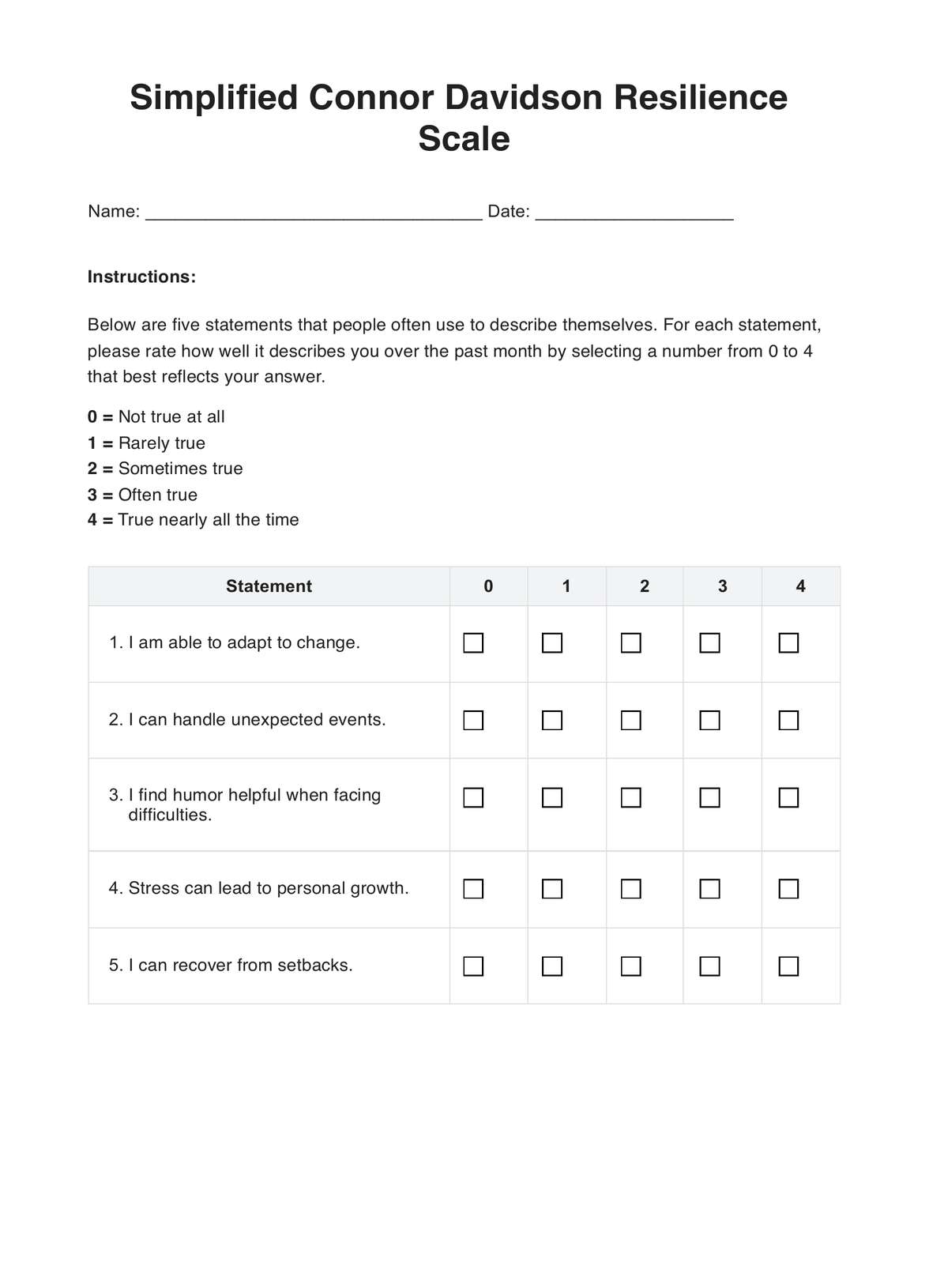Healthcare practitioners, psychologists, counselors, and researchers use the CDRISC.

Connor Davidson Resilience Scale
Discover the benefits of using the Connor Davidson Resilience Scale to assess resilience. Learn why Carepatron is the ideal platform for administering it.
Use Template
Connor Davidson Resilience Scale Template
Commonly asked questions
The CDRISC can be used anytime there is a need to measure an individual's resilience, particularly in the face of stress or adversity.
Individuals rate their agreement with the 25 items on a scale of 0 to 4. The total score, ranging from 0 to 100, represents the individual's resilience.
EHR and practice management software
Get started for free
*No credit card required
Free
$0/usd
Unlimited clients
Telehealth
1GB of storage
Client portal text
Automated billing and online payments











